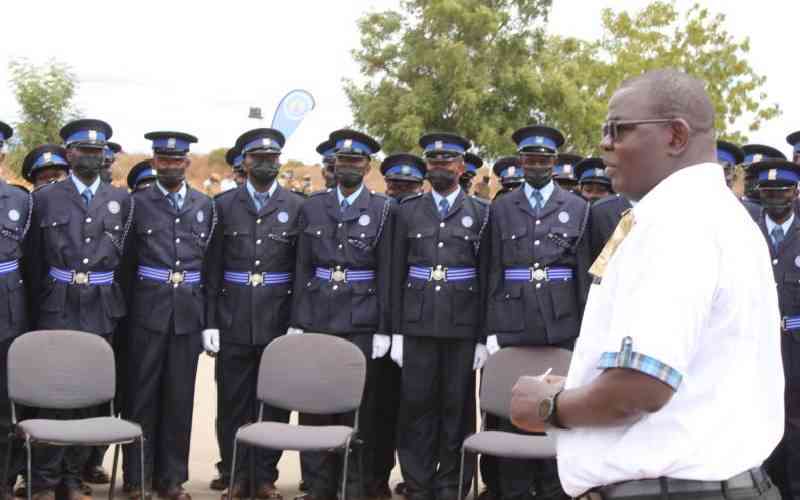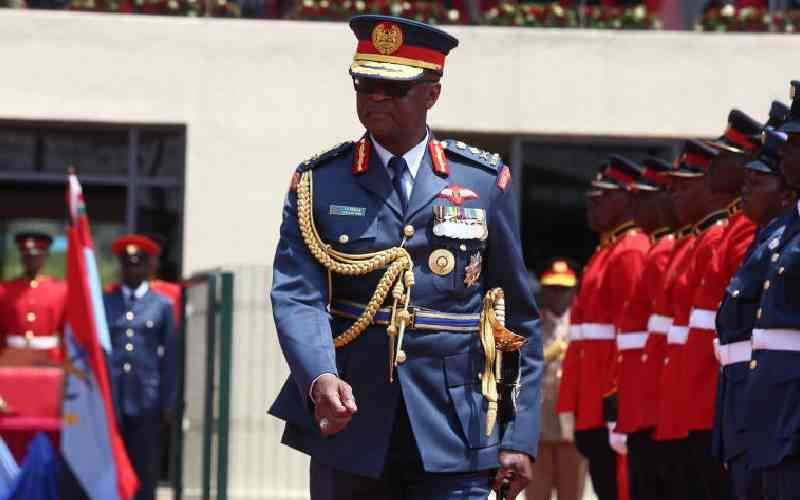A successful nation is one in which the whole is greater than the sum of its parts, and the majority of its citizens feel theirs is such a nation. This week Kenya stood divided as a people and as a nation on the issue of national security.
Article 238 (1) of the Constitution states that “National Security is the protection against internal and external threats to Kenya’s territorial integrity and sovereignty, its people, their rights, freedoms, property, peace, stability and prosperity and other national interests.”
The protection of the territory, sovereignty and people of Kenya against internal and external threats is a matter of national security. So is the protection of the property within Kenya, peace, stability and prosperity.
However, the drafters and supporters of the Security (Amendments) law and the Members of Parliament who voted for it, chose to forget that the protection of the rights and freedoms of the people of Kenya is also a matter of national security.
The freedoms of expression and assembly, the freedoms of the media and opinion, the rights to privacy and to a fair hearing, and public participation in policy and law making, and their protection, are matters of national security.
States exist to serve their citizens. Not vice versa. The Government confers no favours by providing national security. It is obliged to do so. If it fails to deliver, the responsible officers can and ought to be removed from office. The Government cannot limit by law or action any fundamental rights and freedoms purportedly in exchange for provision of better national security.
As a matter of fact, under the Constitution, individuals’ rights and freedoms appear on the list of matters of national security immediately after the protection of the territory and sovereignty of Kenya. They are listed, placed, and prioritised before the protection of property, peace, stability, and prosperity.
The Government, Parliament, the National Police Service, the National Intelligence Service and the Kenya Defence Forces have a constitutional obligation to protect the rights and freedoms of the people of Kenya as a matter and as a part of national security. They do not have any room, power or authority to pass any laws or perform any of their functions in breach of fundamental rights and freedoms.
Any suggestion that fundamental rights and freedoms must and can be foregone for national security is non sequitur. The idea and suggestion itself is a violation of the Constitution.
So much for the provisions of the new law, even the process of the drafting, moving and passing of the law was marked by a disregard of the provisions of the Constitution.
National security is a public service. The public have a constitutional right to be actively involved in the formulation of policy and the passing of any new laws concerning National Security. Public participation was reduced to a window dressing exercise.
Article 24 (2) of the Constitution placed an obligation on the drafters and movers of the Bill to disclose in the Memorandum of Objects and Reasons that the Bill intended to limit some of the fundamental rights and freedoms protected under the Constitution. They were required to state the fundamental rights and freedoms that would be affected, the extent of any limits placed on those rights and freedoms and, the justification. This was not done. The failure to do so rendered the Bill, now law, invalid.
After all has been said and done, if nothing else, Kenya and Kenyans, particularly the non-conformists, have been taught a lesson. Politics in Kenya is not governed by the Constitution and the laws. It is governed by power. Those who seek shelter and refuge in the Constitution are foolish theoreticians.
 The Standard Group Plc is a
multi-media organization with investments in media platforms spanning newspaper
print operations, television, radio broadcasting, digital and online services. The
Standard Group is recognized as a leading multi-media house in Kenya with a key
influence in matters of national and international interest.
The Standard Group Plc is a
multi-media organization with investments in media platforms spanning newspaper
print operations, television, radio broadcasting, digital and online services. The
Standard Group is recognized as a leading multi-media house in Kenya with a key
influence in matters of national and international interest.
 The Standard Group Plc is a
multi-media organization with investments in media platforms spanning newspaper
print operations, television, radio broadcasting, digital and online services. The
Standard Group is recognized as a leading multi-media house in Kenya with a key
influence in matters of national and international interest.
The Standard Group Plc is a
multi-media organization with investments in media platforms spanning newspaper
print operations, television, radio broadcasting, digital and online services. The
Standard Group is recognized as a leading multi-media house in Kenya with a key
influence in matters of national and international interest.








